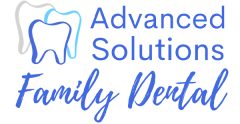Cavities, often known as dental caries, can significantly impact oral health by causing tooth decay and discomfort if left untreated. Despite the conventional understanding of cavity causes, such as sugary foods and poor oral hygiene, some habits could be causing cavities, like frequent snacking, sipping on acidic drinks throughout the day, using certain medications, or even breathing through the mouth. Understanding these less obvious contributors is crucial for maintaining optimal dental health and preventing cavities.
Habit #1: Snacking Throughout the Day
Frequent snacking throughout the day, especially on sugary treats or drinks, is one of the habits that could be causing cavities, exposing teeth to continuous acid attacks. Each time we eat or drink, bacteria in the mouth break down sugars, producing acids that can erode tooth enamel. When snacking is constant, teeth remain bathed in acid for extended periods, increasing the risk of cavity formation. Saliva plays a crucial role in neutralizing these acids by washing away food particles and restoring a neutral pH level in the mouth—however, excessive snacking limits saliva’s effectiveness, leading to prolonged acidity and greater susceptibility to cavities. Limiting snacks and practicing good oral hygiene can help mitigate this risk.
Habit #2: Skipping Brushing After Certain Meals/Drinks
Skipping brushing after meals/drinks is also a part of different habits that could cause cavities, especially those containing sugars or carbohydrates, allowing food particles and plaque to linger on teeth. This buildup feeds oral bacteria, producing acid and potential tooth decay. Brushing promptly after meals helps remove these food remnants and plaque, preventing acids from damaging tooth enamel. The ideal times for brushing are after breakfast to clear away overnight buildup, after meals containing sugars or acids to avoid prolonged exposure, and especially before bedtime to remove debris accumulated throughout the day. Consistent brushing habits are essential for maintaining oral health and reducing the risk of causing cavities.
Habit #3: Using Ineffective Brushing Techniques
Using ineffective brushing techniques can compromise oral hygiene and contribute to cavity formation. Proper brushing technique is essential for thorough cleaning and plaque removal. Brushing too fast or not reaching all tooth surfaces leaves plaque and food particles behind, promoting bacterial growth and acid production. It’s important to brush for at least two minutes each time, ensuring gentle but thorough strokes that cover all areas: front, back, and chewing surfaces of teeth. Angle the brush towards the gum line to clean along the gum margins effectively. Incorporating proper technique into daily brushing habits is crucial for maintaining oral health and preventing cavities.
Habit #4: Not Flossing Regularly
Not flossing regularly neglects crucial areas where plaque can accumulate, particularly between teeth where a toothbrush cannot reach effectively. Flossing is essential because it helps remove plaque and food particles lodged between teeth and along the gumline. This prevents bacteria buildup and reduces the risk of cavities and gum disease. Flossing daily is recommended to maintain optimal oral hygiene, as it complements brushing by targeting hard-to-reach areas. Incorporating flossing into your daily routine significantly enhances the effectiveness of your dental care regimen and contributes to healthier teeth and gums.
Habit #5: Drinking Too Much Acidic or Sugary Beverages
Drinking excessive amounts of acidic or sugary beverages can harm dental health. Acidic drinks like sodas, sports drinks, and fruit juices can erode tooth enamel over time, weakening teeth and making them more susceptible to cavities—additionally, sugary beverages fuel oral bacteria, producing acid that contributes to tooth decay. Water is an excellent alternative to acidic or sugary drinks as it hydrates without harming tooth enamel. Encouraging water consumption instead of acidic or sugary beverages can help protect teeth and maintain overall oral health. Incorporating this habit can make a significant difference in preventing cavities and promoting a healthy smile.
Final Words!
Maintaining good oral hygiene is paramount in preventing cavities and preserving dental health. Individuals can significantly reduce their risk of tooth decay by brushing effectively, flossing daily, and limiting acidic and sugary drinks. You can easily avoid cavities and tooth decay by incorporating simple habits in your dental habits. It’s also crucial to schedule regular dental checkups with your dentist Oak Forest at Advanced Solutions Family Dental for professional cleanings and personalized advice. Regular dental visits ensure early detection of potential issues and provide tailored guidance for optimal oral care.

